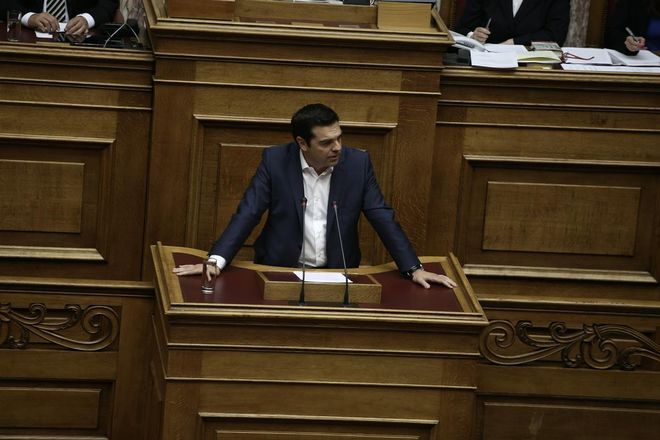By Leonid Bershidsky, BloombergView
Greece’s ruling party, Syriza, is trying to stand on principle rather than accept a deal with the country’s creditors that would stave off bankruptcy. That’s a mistake: Greek voters may soon punish their political leaders for their inept negotiating.
A negotiated solution is only likely so long as the parties talk among themselves, rather than through the media. When Prime Minister Alexis Tsipras published an article in Le Monde late last month accusing his country’s creditors of “insistence on submitting absurd proposals,” it was still possible to expect a compromise because the terms under discussion hadn’t been made public. But now, the Greek government has leaked both its own proposal and that of its creditors, making a speedy resolution more difficult.
Publishing the two positions may have the virtue of transparency, but Greek voters would prefer results. Greece’s economy is projected to grow less than 0.5 percent this year, according to a Bloomberg consensus forecast, and the country cannot hope to do anything about its 25 percent unemployment rate if it goes bankrupt and is cut off from external financing.
Greeks seem to understand this hard truth. According to a survey by the Alco polling organization published Friday, 50 percent of them want the government to back down from its “red lines,” if its proposals aren’t accepted by creditors (41 percent say no), and 47 percent believe the government isn’t negotiating correctly (39 percent give Tsipras the thumbs-up). There’s a lot of support for intransigence, but it is not the dominant viewpoint. If Tsipras and die-hard Syriza functionaries really believed in following the people’s will, they would have softened their stand, and there would be no need for leaks: a single column of numbers would be released with both parties’ approval.
The creditors have made important concessions. They would now accept a Greek primary surplus of 1 percent of gross domestic product this year and 2 percent in 2016, down from 3 percent and 4.5 percent respectively in the current bailout program. Their other demands are also modest: 3 billion euros in additional revenue raised this year and minor cuts to pension spending.
Yesterday, the Financial Times published a letter from an impressive list of economists, headed by Nobel laureate Joseph Stiglitz and economics rock star Thomas Piketty that called on the creditors to show “economic sanity and humanity.” The letter could have been written by Tsipras: It uses “austerity” as if it was a four-letter word. Yet what the creditors now demand does not amount to austerity; they want a measure of responsibility and an honest attempt to boost revenue, which shouldn’t be too much to ask of Syriza. In the negotiations, the Greeks wanted an 0.6 percent primary surplus, 1.9 billion euros in extra revenue and no pension cuts.
The difference is not worth fighting over and does not require a referendum or early election to approve, whatever the firebrands within Syriza may think.
Greece is dragging its feet. It’s also delaying a 300 million euro ($337 million) payment to the International Monetary Fund, due Friday. The delay is widely interpreted as a sign of the growing pressure on Tsipras from Syriza hardliners in parliament (which the prime minister is due to address tonight). Yet Greeks voted for the party in January, so its internal politics are beside the point; if Syriza fails to deliver results, voters will hold it collectively responsible.
According to the Alco poll, support for Syriza now stands at 31.3 percent, lower than the 36.3 percent the party won in the January election. If an early election is held and Syriza and its small coalition partner perform according to polls results, they will lose their parliamentary majority. Their opponents, who backed the current bailout deal, are doing no better: the New Democracy party now has 20.4 percent backing, down from 27.8 percent in January. Going to the voters without making a deal — which has a 40 percent chance of happening, according to Royal Bank of Scotland analysts — would likely produce a parliament unable to agree on anything. That’s not what Greeks want. The Alco poll shows 74 percent want their country to keep the euro, and that is impossible without some kind of bailout arrangement.
It is up to Syriza to accept the compromise on offer. Neither side will be 100 percent happy with the outcome, but that’s democracy.









